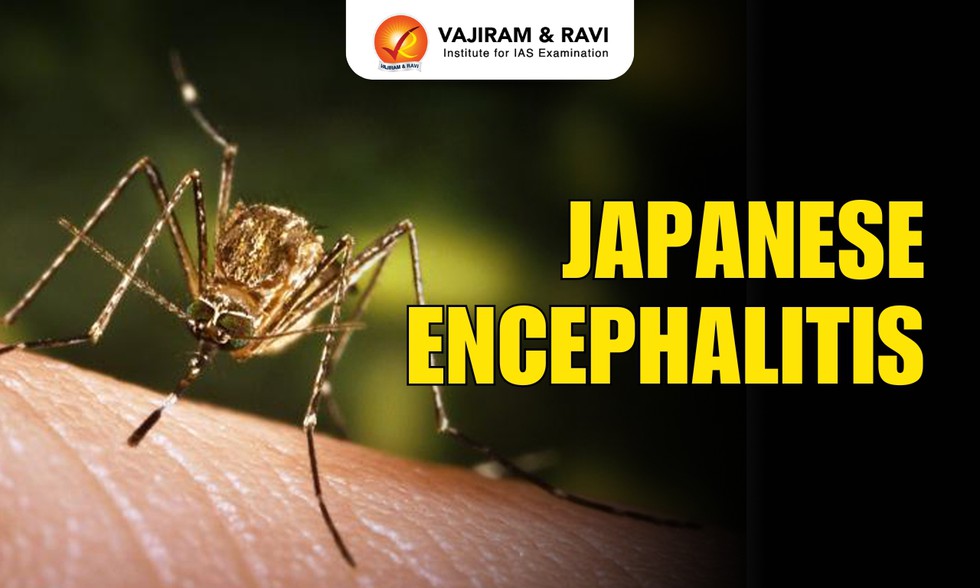About Japanese Encephalitis:
- It is a viral zoonotic disease caused by the Japanese Encephalitis(B) virus.
- Japanese encephalitis virus (JEV) is a flavivirus related to dengue, yellow fever and West Nile viruses.
- Transmission of Japanese Encephalitis:
- The virus is transmitted to humans by the infected Culex mosquito of the Vishnui group.
- There is no human-to-human transmission of the virus.
- It is most common in rural areas of Asia, particularly during monsoon seasons when mosquito breeding is prevalent.
- Both Japanese encephalitis virus and dengue virus belong to the same genus,
- Symptoms of Japanese Encephalitis:
- It affects the brain, leading to symptoms like fever, headache, vomiting, and neurological signs such as confusion, seizures, and paralysis.
- While many infected individuals may show mild or no symptoms, severe cases can lead to permanent brain damage or death.
- Prevention and Treatment for Japanese Encephalitis
- There is no antiviral treatment for patients with JE. Treatment is supportive and includes stabilization and relief of symptoms.
- Vaccination is the most effective prevention strategy, particularly in endemic regions.
- According to the Government of India’s guidelines, two doses of the vaccine have been a part of the Universal Immunisation Programme since 2013.
